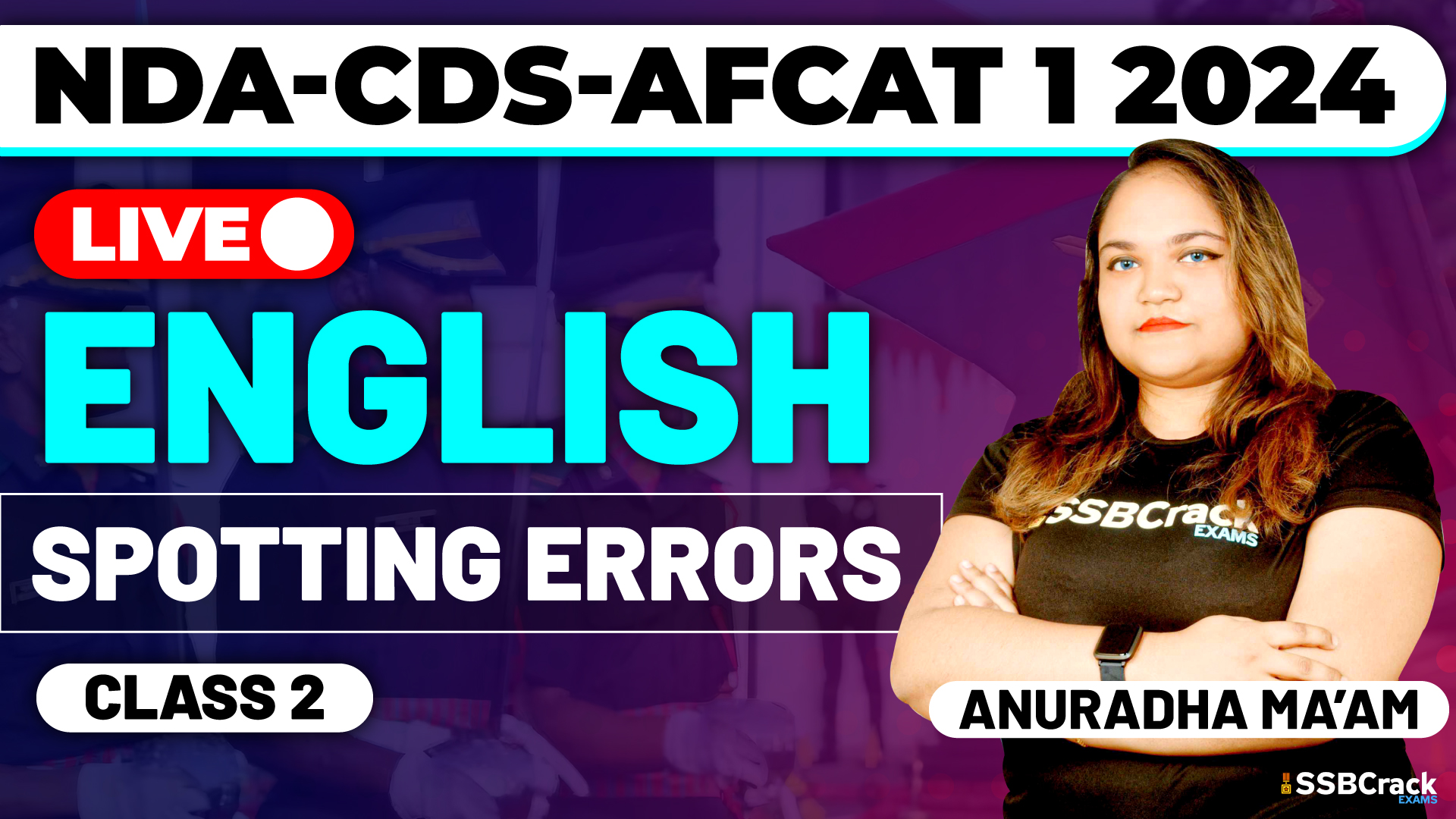In the realm of competitive examinations like the National Defence Academy (NDA), Air Force Common Admission Test (AFCAT), and Combined Defence Services (CDS), the English language section stands as a formidable challenge for aspirants. Among the various topics tested, “Spotting Errors” emerges as the linchpin, the area where candidates either shine or stumble. To excel in this section, one must possess a deep and thorough understanding of English grammar rules. One of the pillars of success in mastering Spotting Errors is a command of the rules governing pronouns.
Significance of Pronoun Rules
Pronouns are linguistic chameleons; they replace nouns to avoid repetition and contribute to concise and coherent communication. A firm grasp of pronoun rules is crucial for several reasons:
- Spotting Errors Prowess: Questions in the Spotting Errors section often hinge on the correct usage of pronouns. A clear understanding of pronoun rules enables you to swiftly and accurately identify grammatical discrepancies.
- Clarity in Communication: Pronouns streamline communication by replacing nouns that have already been mentioned. Using them correctly ensures that your message is clear and concise.
- Effective Writing: In written communication during exams or interviews, the appropriate use of pronouns can significantly enhance the flow and readability of your text.
- Grammar Mastery: A strong foundation in pronoun rules is not just advantageous for competitive exams but also for overall proficiency in English.
Crucial Pronoun Rules for Success
Let’s delve into some of the most critical and exam-specific pronoun rules that can help you conquer the Spotting Errors section in NDA, AFCAT, and CDS exams:
- Subject Pronouns: Subject pronouns (I, you, he, she, it, we, they) are used when the pronoun is the subject of a sentence. Ensure they agree in number and gender with the noun they replace.
- Object Pronouns: Object pronouns (me, you, him, her, it, us, them) replace nouns that are objects of verbs or prepositions. Use them correctly to maintain grammatical accuracy.
- Possessive Pronouns: Possessive pronouns (mine, yours, his, hers, its, ours, theirs) indicate ownership and do not require apostrophes. They should match the noun’s gender and number.
- Reflexive Pronouns: Reflexive pronouns (myself, yourself, himself, herself, itself, ourselves, yourselves, themselves) are used when the subject and object of a sentence are the same. Incorrect usage can lead to errors.
- Relative Pronouns: Relative pronouns (who, whom, whose, which, that) introduce relative clauses that provide additional information about a noun. Choose the appropriate relative pronoun based on its function in the sentence.
- Demonstrative Pronouns: Demonstrative pronouns (this, that, these, those) replace specific nouns and indicate their proximity in space or time.
- Interrogative Pronouns: Interrogative pronouns (who, whom, whose, which, what) are used to ask questions. Select the right interrogative pronoun to frame meaningful questions.
- Indefinite Pronouns: Indefinite pronouns (all, another, any, both, each, either, few, many, neither, none, some) do not refer to specific nouns and can be singular or plural. Ensure they agree with the noun they replace.
Conclusion
Mastering pronoun rules is not just a prerequisite for excelling in the Spotting Errors section of NDA, AFCAT, and CDS exams; it is a fundamental skill for effective communication in English. These rules provide a solid foundation for understanding sentence structure, grammar, and clarity in expression. By dedicating time to learn and practice pronoun rules, you equip yourself with a potent tool to navigate the challenges of competitive exams and enhance your English language proficiency. Embrace these rules, practice diligently, and pave your path to success in the NDA 1 2024, AFCAT 1 2024, and CDS 1 2024 exams.







